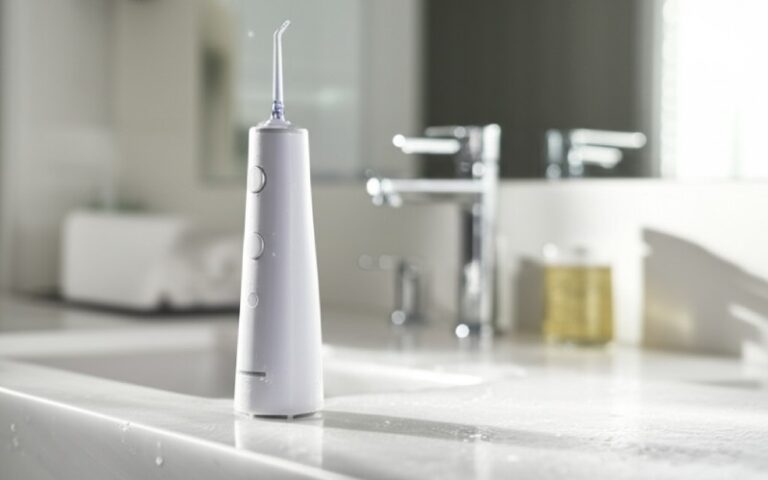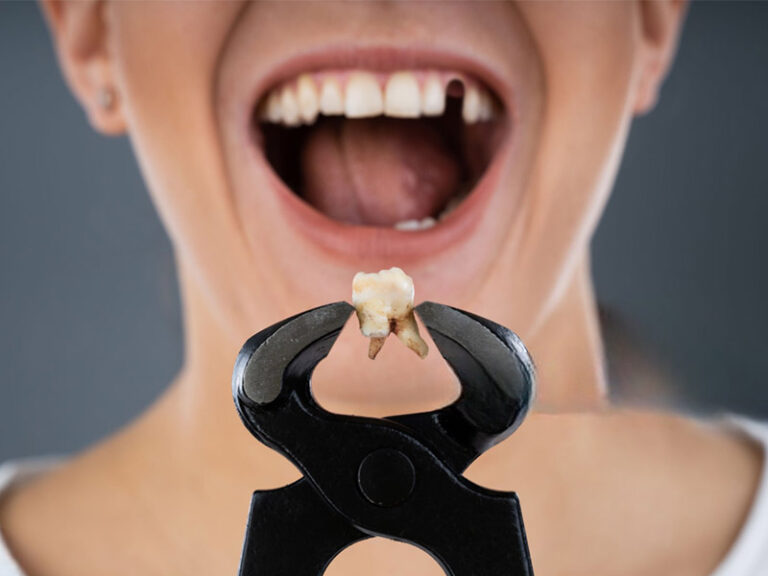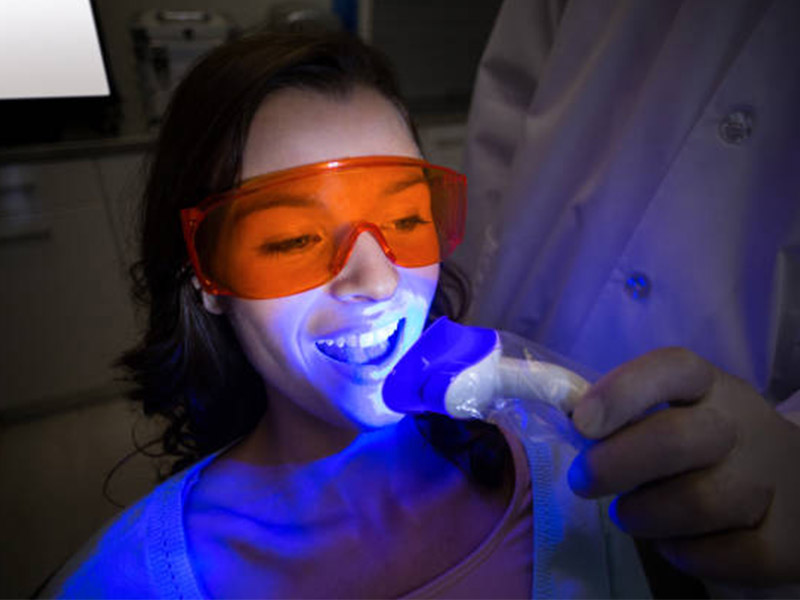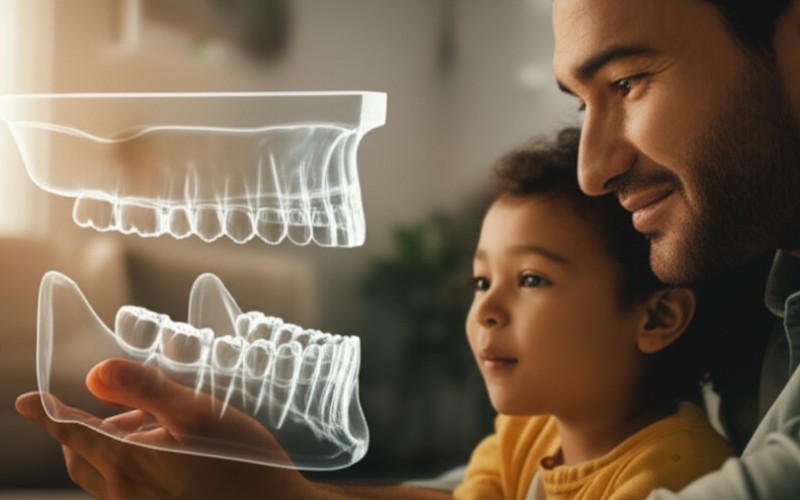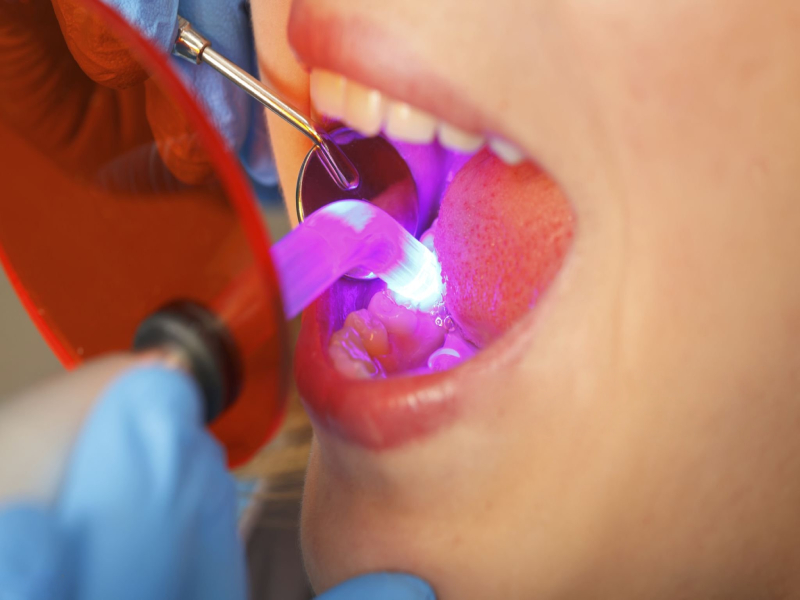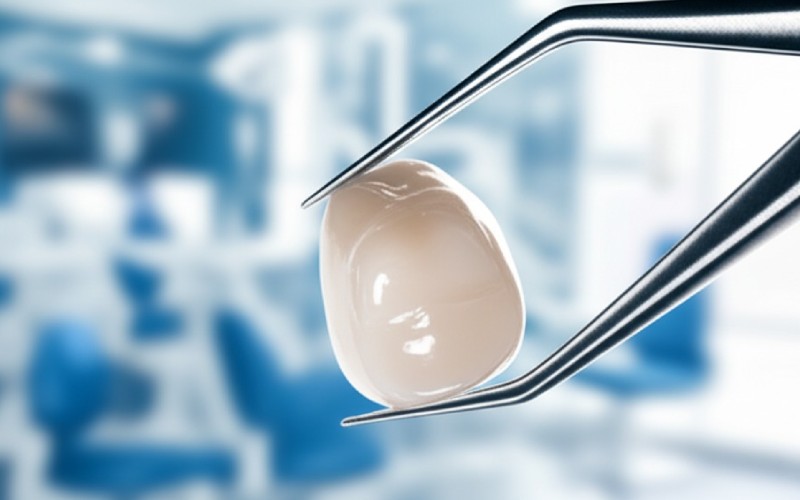
Mein Zahn wird schwarz, aber ich habe keine Schmerzen: Ist es ein Notfall?
I’ve been in the dental field for a long time. I’ve seen it all. But I still remember the look on a friend’s face when he pointed to his front tooth and said, “Look at this. It’s turning black, but it doesn’t hurt at all.” He was calm, but his eyes were worried. He saw a problem, but the lack of pain made him confused. He thought maybe it was just a stain. This is a common story. You notice a tooth turning black. It is scary. It makes you feel unsure about your smile. But because there is no pain, you might wait. You might hope it goes away. This is a mistake.
That lack of pain can be the biggest red flag of all. This article is for you if you have a black tooth. It is for you if you are worried but don’t know what to do next. I will walk you through why a tooth can turn black. I will explain why even a painless black tooth is a dental emergency. We will talk about what your dentist can do. And most importantly, I will give you the clear, simple information you need to take action and protect your health and your smile. You will learn what is happening inside your tooth and what your next steps should be.
Inhaltsübersicht
What Causes a Tooth to Turn Black?
So, you look in the mirror and you notice a tooth turning black. It’s a shock. Your first thought might be, “What did I eat or drink?” Sometimes, things like coffee, tea, or wine can stain your teeth. This is called an extrinsic stain, meaning it’s on the outside layer of your tooth. These are usually brown or yellow, not deep black. But when a tooth itself starts to turn black, the problem is often on the inside. This is called an intrinsic stain.
There are two main things that can cause a tooth to turn black. The first is decay. We call this tooth decay or cavities. Small bits of food and sugar can create acid that makes a hole in your tooth enamel. If left untreated, this decay can go deep into the tooth, and the rotten part can appear black. The second major cause is trauma. If you get hit in the mouth, it can damage the inside of the tooth. The blood supply can be cut off. This is what we will talk about more. These are the main causes a tooth to change color so much.
Understanding the underlying cause is the first step. A dark spot might seem small, but it can be a sign of big dental problems. Your dentist is the only one who can tell you for sure what is happening. They can see what is happening in the layers of the tooth. Don’t guess. Get a real answer.
Is a Tooth Turning Black an Emergency, Even with No Pain?
This is the big question. You have a tooth turning black no pain. So, is a black tooth an emergency? My answer is simple. Yes. It is always a dental emergency. The fact that you have no pain is actually more worrying. Pain is your body’s alarm system. It tells you something is wrong. If that alarm system is silent, it might be because the system itself is broken.
When a tooth turning black but no pain happens, it often means the nerves and blood vessels inside the tooth are dead or dying. The living tissue inside your tooth is what feels pain. If that tissue is gone, you won’t feel anything. But the problem is not gone. An infection can be growing silently inside the root of the tooth. This infection can spread to your gum and jawbone. It can lead to a serious abscess, severe pain later, and even tooth loss.
Do not wait for pain. The moment you see a black tooth, you should make an emergency appointment with your dentist. Think of it like this: if you saw a small fire in your house, you would not wait for it to become a big fire. A painless black tooth is that small fire. It is a warning. Taking care of it now can prevent much bigger and more painful problems down the road. Ignoring it is a risk you should not take with your health.
Could My Black Tooth Be from an Old Injury?
Yes, absolutely. Think back. Did you ever fall as a child? Get hit in the mouth with a ball? Even a small bump you forgot about can cause trauma to a tooth. When a tooth gets hit, it’s like getting a bruise on your arm. A bruise is just broken blood vessels under the skin. The same thing can happen inside your tooth.
The inside of your tooth has soft tissue with nerves and blood vessels. When there is trauma, these tiny vessels can break. The blood leaks out and stains the inside of the tooth from within. At first, you may not notice anything. But over weeks, months, or even years, the tooth might slowly get darker. It might look pink or grey at first, and then turn black over time. This discoloration of a tooth is a sign that the tooth is dying or already dead.
This is a very common reason for a single dark tooth, especially a front tooth. The tooth can turn black even if it is not chipped or broken. The damage is all on the inside. This is another reason why you need a dental expert to look at it. They can take an x-ray to see if the root of the tooth has been damaged. A forgotten injury can be the secret reason your tooth now looks black.
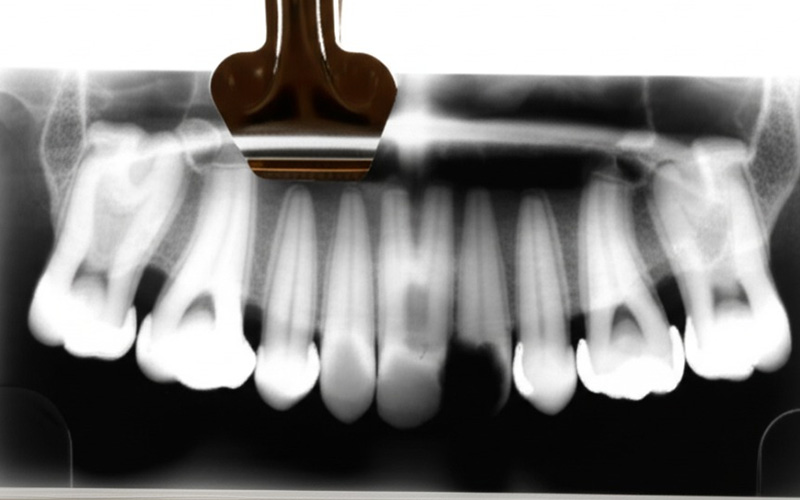
Is It Just Tooth Decay? What Do Black or Brown Spots Mean?
Sometimes, the cause is simple dental decay. Tooth decay happens when bacteria in your mouth eat sugar and make acid. This acid eats away at your tooth. It often starts as a small white spot. If you don’t stop it, it gets bigger. It can turn into a hole, or a cavity. As the decay gets worse, the affected area of the tooth can look black or brown.
You might see small black spots or even black lines on the chewing surfaces of your back teeth. This is often where decay starts. If the black tooth is due to decay, it means the structure of your tooth is being destroyed. The decay can spread through the hard outer layers and into the soft inside of the tooth. When you see a black or dark brown color, it often means the decay is advanced.
The problem with decay is that it doesn’t stop on its own. It will keep growing. Teeth affected by decay can become weak and break. The decay can reach the nerve, which can cause a very bad toothache. Or, if the nerve dies from the infection, the pain might stop, but the tooth will continue to rot. This is why good oral hygiene is so important. You must brush your teeth to remove food and bacteria before they can cause this kind of damage.
What Happens When a “Dead Tooth” Turns Black?
I have used the term “dead tooth” a few times. Let me explain what that means. A living tooth has a supply of blood and nerves in the center. This is what keeps the tooth healthy and lets you feel hot and cold. When that supply is cut off, either from an injury or a bad infection from tooth decay, the tooth dies. It no longer has living tissue inside it. This is called a necrotic tooth, or a dead tooth.
One of the most obvious signs of this is a change in color. A dead tooth will often become dark, looking grey, brown, or even black. The black appearance is caused by the breakdown of red blood cells inside the tooth, just like with an injury. The death of the tooth is a serious dental issue. It means the tooth is no longer getting the nutrients it needs to stay strong.
A dead tooth is very brittle. It can chip or break easily. More importantly, the dead tissue within the tooth is a perfect place for bacteria to grow. This can lead to an infection at the tip of the root, called an abscess. This is a serious condition that requires immediate dental treatment. So, when a tooth looks black, it’s a strong sign that the tooth might be dead, and you need to see a dentist right away.
What is a Root Canal and Can It Save My Black Tooth?
Now, let’s talk about solutions. If you have a dead or infected tooth, you might think the only option is to pull it out. For many years, that was the only choice. But today, we have a wonderful procedure called a root canal treatment. I know the words “root canal” can sound scary to some people, but it’s one of the best ways we have to save a natural tooth.
A root canal is a dental procedure to clean out the inside of your tooth. The dentist carefully removes the dead or infected tissue from the inside. They clean and disinfect the space and then seal it up. This removes the infection and stops the problem from spreading. The goal is to save the structure of your tooth. Once the root canal is done, the tooth is no longer “alive,” but it is clean and safe. It can stay in your mouth and work like a normal tooth.
After a root canal treatment might be finished, the tooth can still be dark. So, your dentist will often place a crown, which is like a cap, over the tooth. The crown protects the weakened tooth and makes it look like a normal, healthy tooth again. A root canal is a fantastic way to treat the infection, get rid of the cause, and save your smile. A canal treatment might be necessary to save the tissue and save the tooth.
What Are My Treatment Options for a Black Tooth?
Your black tooth treatment will depend on the cause. This is why seeing a dentist is so important. They will find the underlying cause and suggest the best treatment option for you. There is no single answer for all black teeth.
If the black teeth are caused by surface stains, the solution might be simple. A professional cleaning and maybe tooth whitening can help. Your dentist can whiten teeth that are stained on the outside. But if the problem is inside, whitening won’t work. If your black tooth is due to a small cavity, a simple dental filling might be all you need. The dentist will remove the decay and fill the hole.
If the tooth is dead or badly infected, a root canal treatment is often the best choice, as we just discussed. This cleans the inside and saves the tooth. If the tooth is very badly broken or the decay is too severe, a root canal might not be possible. In these cases where the tooth is too damaged to be saved, we have to look at other options. The right dental plan is key.
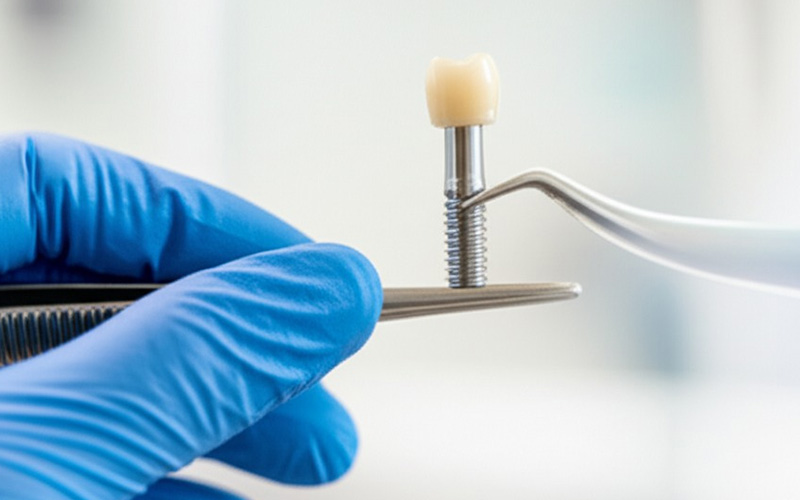
When is Tooth Extraction the Only Answer?
Sometimes, a tooth is just too damaged to save. This can be sad news to hear, but sometimes tooth extraction is the best and only choice for your overall health. If an infection is too large, if the tooth is broken below the gum line, or if there isn’t enough healthy tooth structure left, then trying to save it might fail.
Your dentist will only recommend a tooth extraction when it is truly necessary. It is always the last resort. The goal of modern dental care is to keep your natural teeth for as long as possible. But keeping a badly diseased tooth in your mouth can cause more harm. It can let infection spread and damage the bone you would need for other treatments later.
If an extraction is needed, don’t worry. It is a very common dental procedure. Your dentist will make sure you are comfortable and don’t feel pain. The big question after an extraction is, “What comes next?” Leaving an empty space is not a good idea. It can cause other teeth to shift and create new problems. This is where we talk about tooth replacement.
What About Tooth Replacement? Let’s Talk Dental Implants.
This is where my work gets really exciting. After a tooth is lost, we need to fill that space. We need a solution that looks good, feels good, and works like a real tooth. For years, we had bridges or partial dentures. They work. But today, the best solution we have is the dental implant.
As someone who is involved in making the parts for these amazing devices, I see the incredible technology up close. A dental implant is a small, strong post that acts like a new tooth root. It is placed into your jawbone where the old tooth was. Your bone then grows around the implant, making it strong and stable. Then, a beautiful, natural-looking crown is attached to the top of that post.
The result is a new tooth that is not just a space-filler. It is a true tooth replacement. It is strong. You can eat with it. You can smile with confidence. Because we can match the color and shape perfectly, no one will ever know it’s not your original tooth. When we manufacture a crown for a dental implant, we use the highest quality materials to ensure it lasts and looks perfect. A dental implant is the closest thing you can get to growing a new, healthy tooth. It’s a wonderful, long-term solution to tooth loss. There are other tooth replacement options, but this is often the best.
How Can I Prevent Black Teeth in the Future?
The best dental care is prevention. You don’t want to go through issues like black teeth. So, how can you prevent black teeth? It comes down to simple, good habits. The most important thing is excellent oral hygiene. This means you need to brush your teeth twice a day with fluoride toothpaste. And don’t forget to floss every day to clean between your teeth.
Eating a healthy diet that is low in sugar is also very important. Sugar feeds the bacteria that cause dental decay. The less sugar they have, the safer your teeth will be. If you play sports, wear a mouthguard. This simple piece of plastic can protect your teeth from the kind of trauma to a tooth that can cause it to die and turn black.
Finally, and this is the most important tip, see your dentist for regular dental checkups and cleanings. I recommend seeing them at least once a year, or twice if you can. Your dentist can spot problems when they are very small, long before you would notice them. They can find a small spot of decay and fix it with a tiny filling before it turns into a big, black cavity. They can keep your teeth and gum tissue healthy. Prevention is always easier and cheaper than treatment.
Wichtigste Erkenntnisse:
- A tooth that is turning black but no pain is a serious warning sign. It is a black tooth an emergency.
- The cause can be deep tooth decay or an old injury that has caused the dead tooth phenomenon.
- Do not wait for pain. See your dentist immediately if you notice a black tooth.
- Treatments for black teeth range from a dental filling to a root canal, which can often save the tooth.
- If the tooth must be removed, a dental implant is the best modern tooth replacement option.
- Good oral hygiene, including brushing, flossing, and regular dental visits, is the best way to prevent black teeth.

